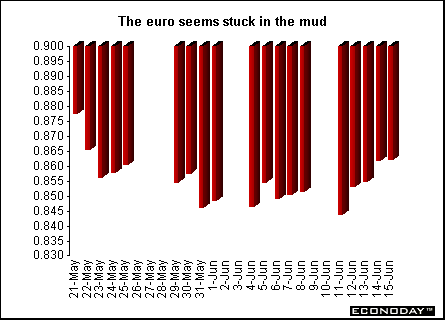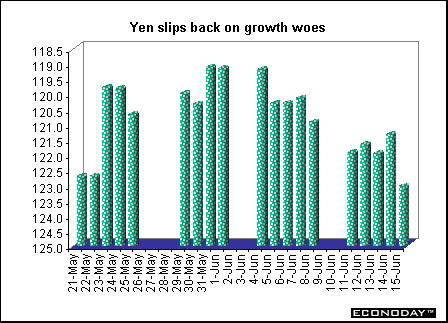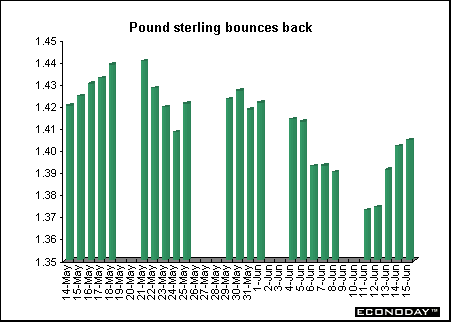
Currencies
Verbal intervention helped the euro bounce back after it fell to a six-and-a-half month low on Monday. ECB Governing Council Member and Bundesbank President Ernst Welteke said the ECB has the "utmost interest" in a strong euro and is watching foreign exchange developments closely for signs of inflationary risks. With the euro on the bounce market players are wary that central banks, wanting to reverse the currency's long term slide, may begin buying euros when market resistance is weakest. But some analysts believe ECB intervention isn't likely until the euro has fallen further, and would be ineffective given the central bank's policy tilt toward lower interest rates. Lower interest rates usually dim demand for a currency by trimming returns on deposits. (This wisdom doesn't seem to apply to the United States right now.)

Sweden's Riksbank said in a statement that it intervened in the currency market to strengthen the krona though it declined to say how much it bought or which currencies it sold in exchange. The bank said it was concerned the weak currency would spur inflation by raising import prices. The Riksbank likely sold both dollars and euros, traders said. The Swedish move helped bolster the euro.
The yen was buffeted by U.S. National Association of Manufacturers comments that the strong dollar was hurting manufacturers. The U.S. Treasury promptly reaffirmed its support for a strong dollar policy. The NAM sent a letter to Treasury Secretary Paul O'Neill expressing its concerns about the impact of the strong dollar on manufacturing. A strong currency raises the cost of the exporting country's goods and services while a weak currency feeds inflation. But some traders said Friday's drop was tied instead to changes in FTSE International's global stock indexes. The changes may prompt some investors to sell yen denominated assets.

The pound sterling quickly recovered from its post election drop after government officials denied speculation that Britain will vote soon on joining the euro. The Labour Party government vigorously played down talk it will opt for an early announcement on a euro referendum after last week's landslide election victory. Also boosting the currency were expectations that the Bank of England won't cut its benchmark interest rate again this year. Economic reports showed stronger than expected May retail sales and a rising rate of inflation, while average earnings increased and unemployment held at its lowest since November 1975. That would make it likely interest rates will remain above those in the United States for some time, which would make short term sterling deposits more alluring.



Introduction • Global Stock Market Indexes • Recap of Global Markets • Currencies • Indicator Scoreboard

The Bottom Line • Looking Ahead
|